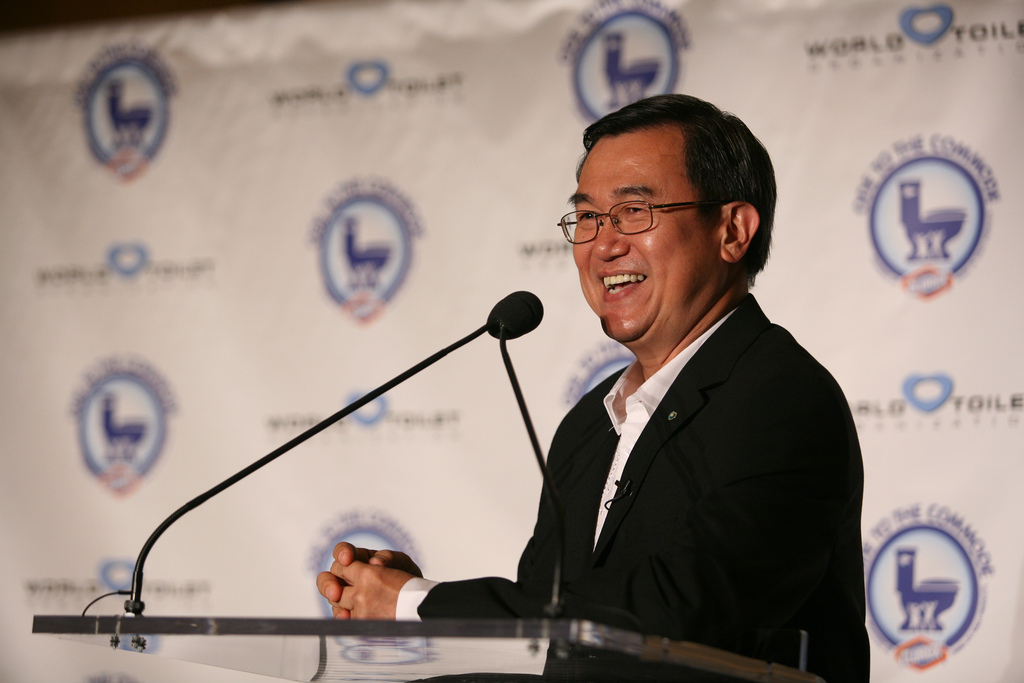It's long overdue. It can't get worse than what's already happening. It can only get better.

"Jack Sim" (/t=/p=Sh?n Ruìhuá}}) is the founder of the Restroom Association of Singapore and World Toilet Organization. Formerly in the construction industry, he left to found the Toilet Organization in 2001. For "creating good will and bringing the subject into the open" and "mobilizing national support in providing on-the-ground expertise" he received the Schwab Foundation award for Social Entrepreneur of the Year, also in 2001. He was elected a Fellow of Ashoka: Innovators for the Public in 2007, and as of Fall 2007 he was assisting in the United Nations plans for the International Year of Sanitation in 2008.
Sim was named one of the Heroes of the Environment (2008)/Heroes of the Environment for 2008 by Time Magazine.
Jack broke the global taboo of toilet and sanitation by bringing it to global media centre-stage with his unique mix of humour and serious facts since 2001.
After attaining financial independence at age of 40 as a businessman, he decided to devote the rest of his life to social work.
More Jack Sim on Wikipedia.We have been conditioned not to talk about it.
We are going to train the toilet cleaners to upgrade himself or herself to a level where he or she can take care of the entire toilet, including changing bulbs, repairing locks, repairing leaky taps, doing periodical heavy cleaning, technical cleaning, taking away urine salt inside the toilet and recommending changes to the toilet layout.
I know of some toilets in Korea where you can drink tea -- you don't feel you are in an awkward situation.
The Code of Practice is needed for all new buildings before they can get licence to occupy. So it's actually enforced. If you add all the urinals and cubicles in male toilet, you must get the same in women's. We recommend getting one or two more for the ladies' restrooms.
After shopping for one or two hours, customers want to visit the toilet and if toilet not good, they leave the building. And they leave with their impulse buying. Impulse buying accounts for 95% of purchases.
There are 2,6 billion people in the world who have no toilets, ... They are toilet-less and what we are trying to do is to build capacity for field engineers to go down to the farms, to the rural areas, to build ecological sanitation.
Copyright © 2024 Electric Goat Media. All Rights Reserved.